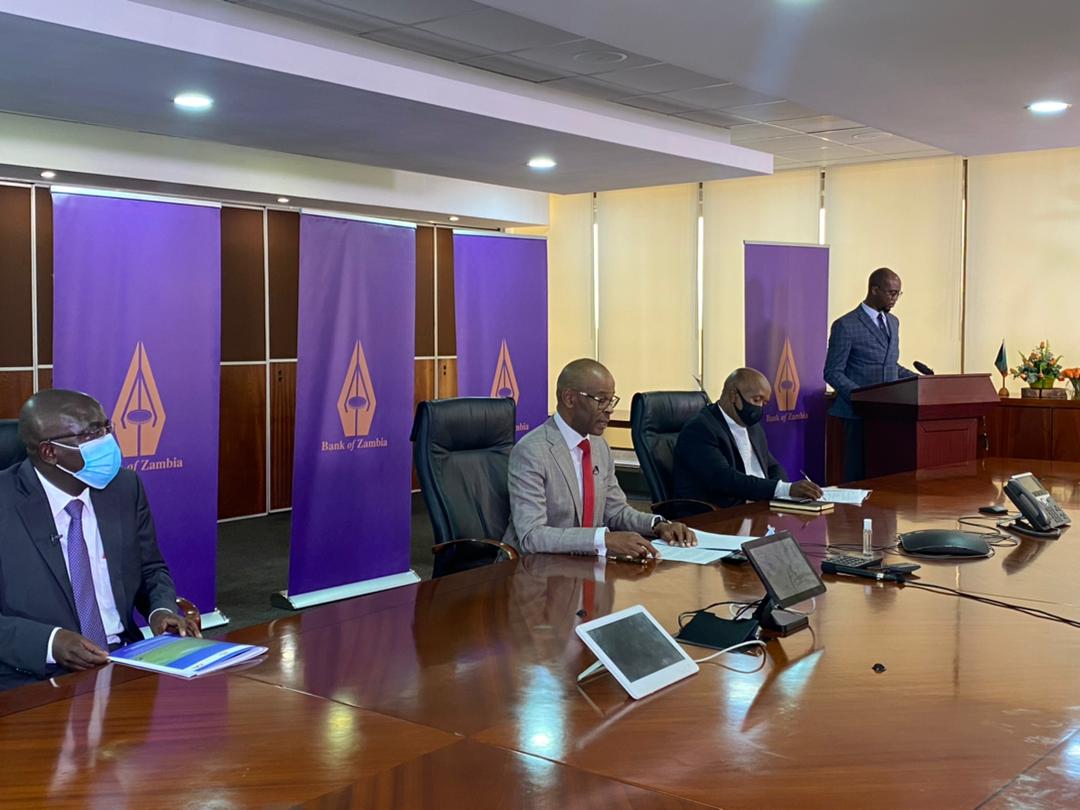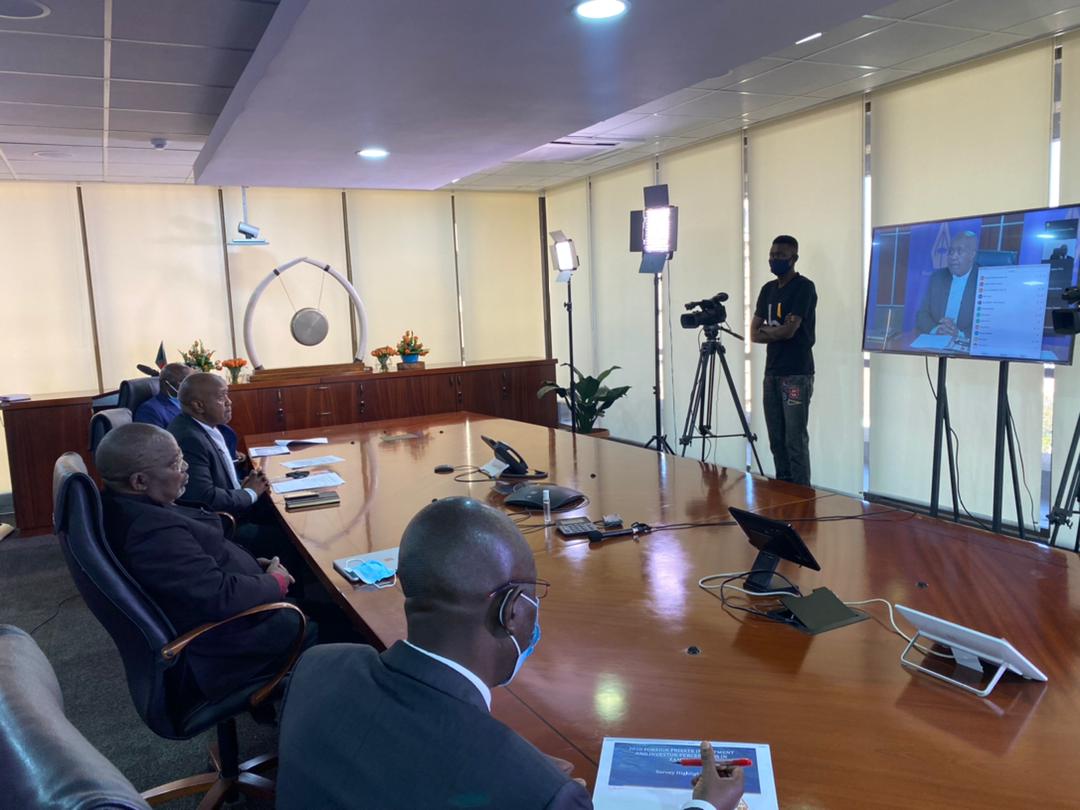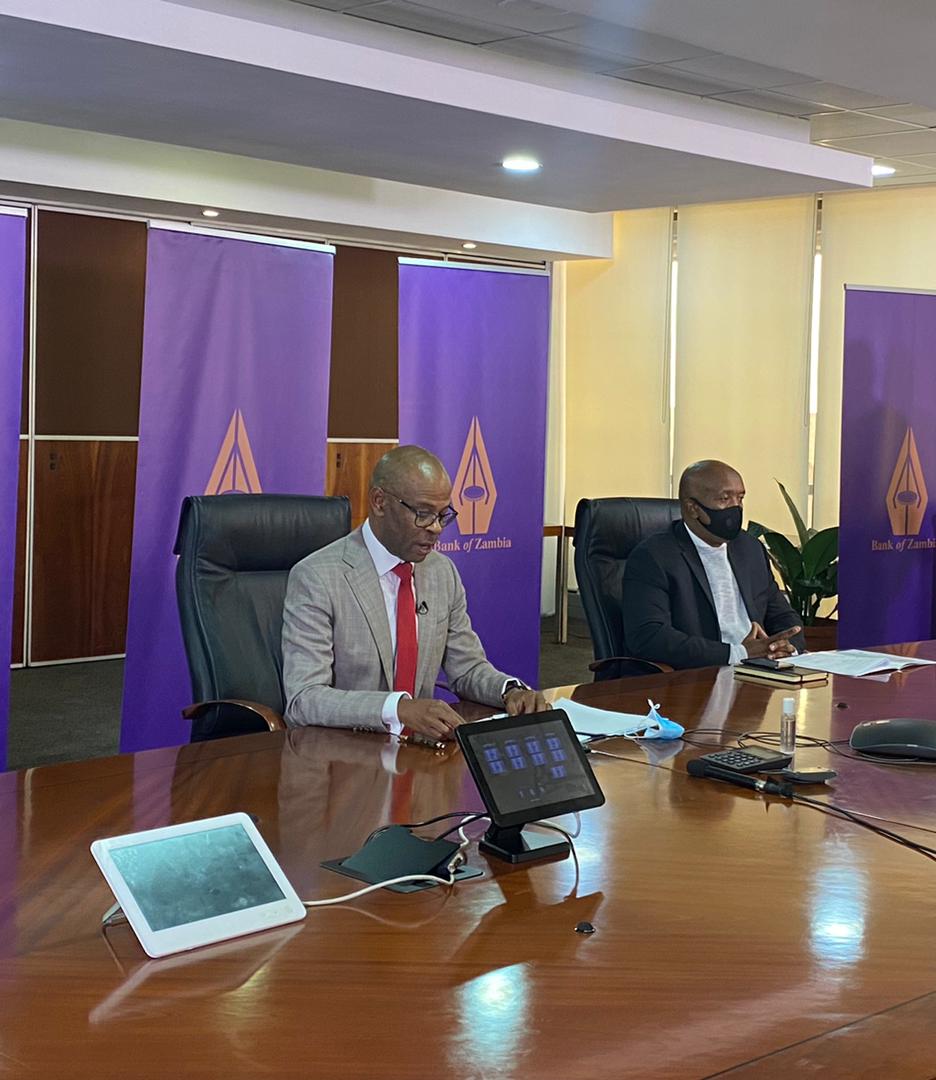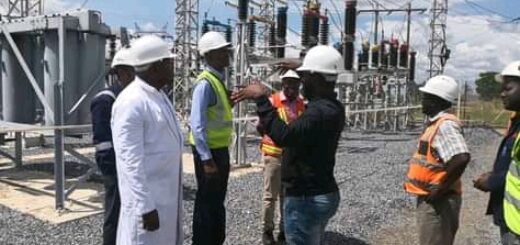Tuesday June 22, 2021 Bank of Zambia (BoZ) Governor Christopher Mphanza Mvunga Opening remarks at “The Virtual Dissemination Workshop of the 2020 Foreign Private Investment and Investor Perceptions Survey RESULTS!”
Notice: Undefined index: catFilterList in /home/zambi/public_html/wp-content/plugins/wp-likes/api.php on line 243

BoZ Governor Christopher Mvunga
OPENING REMARKS AT THE VIRTUAL DISSEMINATION WORKSHOP OF THE 2020 FOREIGN PRIVATE INVESTMENT AND INVESTOR PERCEPTIONS SURVEY RESULTS
By MR CHRISTOPHER M. MVUNGA
GOVERNOR
BANK OF ZAMBIA
JUNE 22, 2021 | LUSAKA
Salutations:
- Permanent Secretaries;
- The Chief Executive Officer, Zambia Development Agency;
- The Interim Statistician General, Zambia Statistics Agency;
- Ambassadors, High Commissioners and Representatives of
Development Partners present;
- Captains of Industry;
- Distinguished invited Guests;
- Members of the Media;
- Ladies and Gentlemen.
Let me begin by welcoming and thanking you all for joining this Virtual Dissemination Workshop of the 2020 Survey on Foreign Private Investment and Investor Perceptions in Zambia, the 13th survey we have conducted so far. Due to the changing circumstances caused by the COVID-19, and the need to stay safe, this workshop is for the first time being held virtually. We, therefore, appreciate your effort to join us in this virtual meeting.
The COVID-19 pandemic has presented an opportunity to transform the way we conduct surveys through the greater use of digital platforms. You may wish to know that the 2020 Survey was conducted using technological platforms to exchange information with our respondents in a secure and safe way. The Bank of Zambia and its collaborating institutions are grateful to the respondents for participating in the Survey and thank you most sincerely for your cooperation.
We also appreciate the efforts by the Balance of Payments Technical Committee comprising representatives from the Zambia Statistics Agency, Zambia Development Agency, Bank of Zambia, and other collaborating institutions for successfully conducting the 2020 Survey.
Ladies and gentlemen, this year’s Survey response rate was 56.4 percent, a significant reduction from the 82.0 percent recorded in 2018. The lower response rate is attributed to reduced working hours, rotational working sequences and work-from-home arrangements induced by the COVID-19 pandemic. The slow response during the Survey prompted an extension of the Survey period to two months from the two-week period that the survey would normally run. This delayed the dissemination of the Survey results, which traditionally takes place in December of each year.
Several respondents were slow to adjust to the electronic data collection method. However, we trust that this will be improved upon.
The continued participation of various enterprises in this exercise is extremely important as it generates information that is critical for making policy decisions. The information we collect is key in assessing developments in the balance of payments, which has important implications for the formulation of sound monetary, fiscal, and trade and investment policies.
Ladies and gentlemen, the 2020 Survey captured the magnitude, types, sources, and direction of foreign private investment for the year 2019 and the first half of 2020. It also included investor perceptions on the investment climate in Zambia.
Let me now turn to the key findings from the Survey, which is the subject of our discussion this morning.
Ladies and gentlemen, private sector foreign flows into Zambia were US$357.1 million in 2019 compared to US$924.7 million in 2018. The decline was largely attributed to debt repayments by the mining and quarrying, manufacturing, deposit-taking corporations as well as information and communication sectors. Nonetheless, foreign direct investment (FDI) liability flows grew by about 50 percent to around US$800 million in 2019. The significant increase was mainly due to related party borrowings of almost US$ 1.0 billion mostly in the mining and quarrying sector. As a result, borrowing from foreign affiliates increased to about US$11.0 billion from US$10.0 billion in 2018. This contributed to the increase in the stock of private sector external debt to US$15.0 billion at the end of 2019.
Switzerland continued to account for the largest share of the debt stock.

Media Coverage
Ladies and gentlemen, turning to sectoral performance, the mining and quarrying sector was the leading recipient of FDI inflows in 2019 amounting to about US$400 million. However, the rise in inflows was moderated by losses recorded in the sector. The manufacturing sector was the second highest recipient of FDI with about US$240 million, followed by deposit-taking corporations at US$90.8 million and electricity sector at US$54.7 million.
Ladies and gentlemen, the first half of 2020 recorded a net outflow of FDI of about US$250 million compared to net inflows of US$412 million recorded in the corresponding period in 2019. This was largely attributed to the significant increases in losses mostly in the mining sector.
Over the same period, private sector foreign asset flows contracted by about 32 percent to US$447 million from US$656 million in 2018. The decline was due to the reduction in currency and deposit holdings by deposit-taking corporations.

Bank of Zambia (BoZ) Governor Christopher Mphanza Mvunga
Ladies and gentlemen, with regard to investor perceptions, market potential, peace and security, political stability, favourable tax regime, good infrastructure and non-fiscal incentives were identified as the main motivating factors for investing and re-investing in our economy. Despite the deterioration in the ease of doing business, interventions in the foreign exchange market as well as the reduction in the policy rate by the Bank of Zambia were seen as positive measures that supported business activity.
However, the increase in the rate of withholding tax on dividends, interest earned and remittance of branch profits to non-residents as well as increased Government borrowing both domestically and abroad were cited as having adverse effects on businesses. In addition, the COVID-19 pandemic was perceived as a risk that was likely to constrain investment by limiting access to markets and raw materials.
In conclusion, respondents’ views are that easing the adverse effects of the COVID- 19 pandemic on businesses, restoring macroeconomic stability, attaining fiscal and debt sustainability, and restoring growth and economic diversification will support the private sector. This, in addition to addressing high lending rates, problem of policy inconsistency, perceived high levels of corruption, inefficiency of the public service, improvement in infrastructure and instability in the tax regime.
Further, respondents were of the view that Government needs to take appropriate measures to enhance dialogue with the private sector.
Finally, I wish to thank you all for joining the discussions through this digital platform and hope that you will use this opportunity to delve into Survey findings and recommend appropriate measures to improve the overall business environment in the Country.
It is now my honour and privilege to officially open the workshop and wish everyone successful and fruitful deliberations.
I thank you for your kind attention.
MAY GOD BLESS US ALL






















